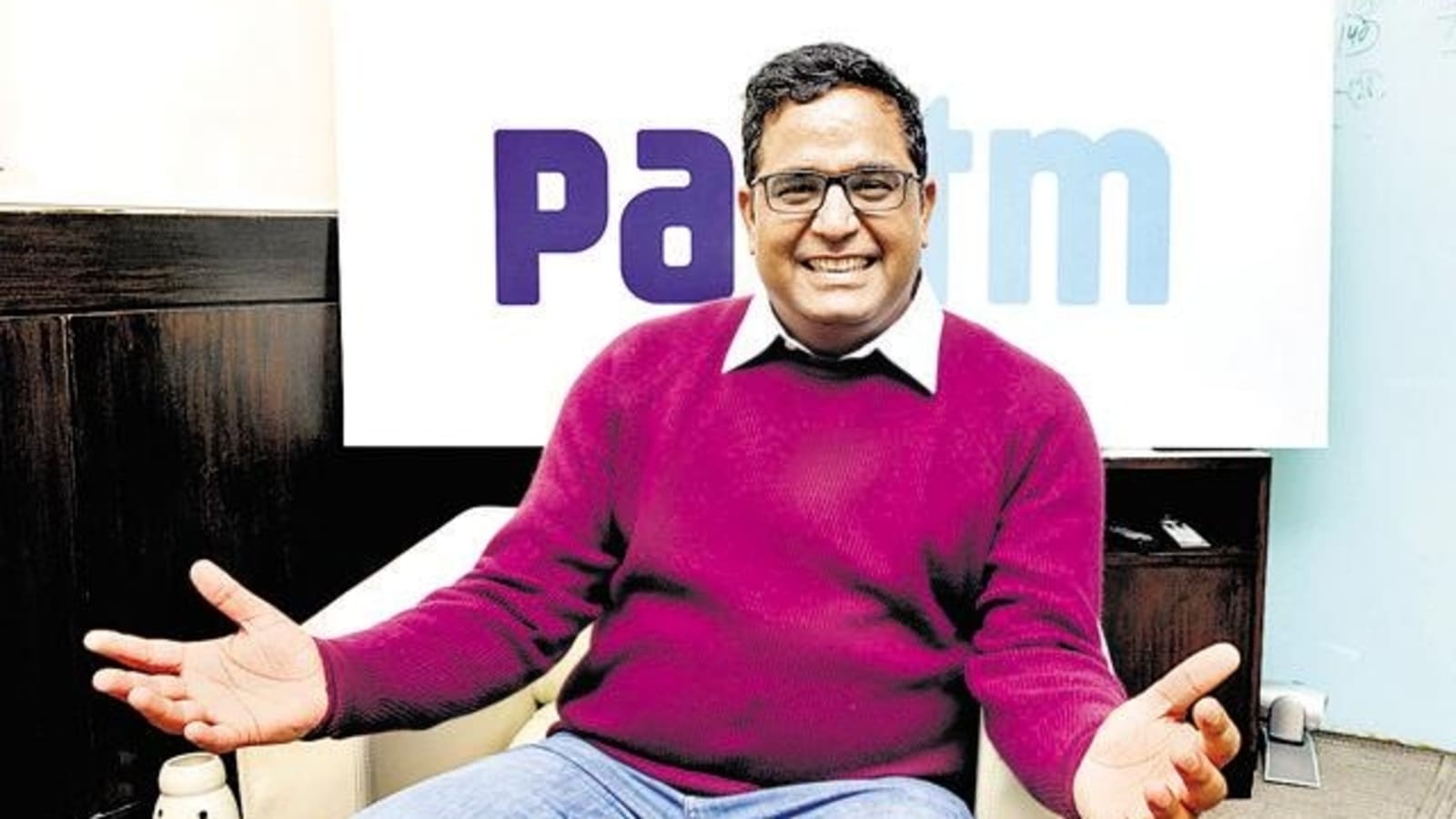Vijay Shekhar Sharma Acquires 10.3% Stake in Paytm, Empowering Future Growth

Vijay Shekhar Sharma Acquires 10.3% Stake in Paytm, Empowering Future Growth
Vijay Shekhar Sharma, the founder and CEO of One97 Communications and its well-known consumer brand Paytm, has reached an agreement to acquire a 10.3% ownership stake in the company. This acquisition will be conducted through his wholly-owned firm, Resilient Asset Management B.V. The transaction involves purchasing the stake from Ant Financial, signifying a strategic move by Sharma to further consolidate his position and influence within the company he founded. This deal underscores the evolving dynamics and ownership shifts within Paytm and its parent company, reflecting Sharma’s ongoing commitment to the company’s growth and direction.
Antfin Holding B.V. is set to transfer a significant portion of its ownership in Paytm’s parent company, One97 Communications, to Resilient Asset Management B.V., an entity owned by Vijay Shekhar Sharma. The transfer will involve 65,335,101 shares and will be carried out through an off-market transfer. This strategic move underlines a shift in ownership and highlights Sharma’s intent to increase his stake in the company, showcasing his commitment and influence in shaping the future of One97 Communications and Paytm. This transaction aligns with the broader landscape of ownership changes and developments within the organization.
The agreement outlines that Vijay Shekhar Sharma’s Resilient Asset Management B.V. will acquire both ownership and voting rights associated with a 10.3% ownership block of the company. In return for this transaction, Resilient will issue Optionally Convertible Debentures (OCDs) to Antfin Holding B.V. (Ant Financial).

The total value of these OCDs will amount to $628 million, serving as consideration for the ownership transfer. This strategic arrangement further solidifies Sharma’s involvement and influence within the company, while the issuance of OCDs provides a financial framework for the transaction. This development reflects the dynamic nature of ownership and investment strategies within One97 Communications and underscores the significant value associated with this transaction.
The statement further clarifies that no cash payment will be involved in this acquisition process. Additionally, Vijay Shekhar Sharma will not provide any form of pledge, guarantee, or other value assurance, whether directly or indirectly, in connection with this acquisition. This stipulation underscores the nature of the transaction, highlighting that it is conducted without the exchange of cash or any form of financial obligation on Sharma’s part. The absence of such financial obligations underlines the terms of the acquisition agreement and Sharma’s commitment to acquiring the ownership stake through the outlined channels.
Antfin Holding B.V. previously held the position of the largest stakeholder in Paytm’s parent company, One97 Communications, with a stake of 23.8%. As a result of this transaction, Antfin’s stake will be reduced to 13.5%. Concurrently, Vijay Shekhar Sharma’s stake in the company will increase significantly, reaching a shareholding of 19.2% after the completion of the transaction. This change in ownership distribution highlights a strategic shift within the company and Sharma’s increasing influence and involvement in its affairs. The realignment of shareholding proportions reflects the evolving dynamics and strategic decisions being made by both parties involved.
This latest stake acquisition by Vijay Shekhar Sharma is the most recent instance of secondary transactions occurring within Paytm’s ownership structure. Notably, SoftBank, a prominent Japanese investment firm, engaged in a similar secondary transaction just last month. By selling an additional 2% stake in Paytm through the public market, SoftBank generated an estimated $180 million to $200 million in proceeds.

As a result of this move, SoftBank’s stake in the fintech company dipped below the 10% mark. This follows the trend set earlier this year when Alibaba, the renowned Chinese e-commerce giant, executed its own secondary transactions. In these instances, Alibaba offloaded its 6.26% stake in Paytm over two separate transactions, further illustrating the evolving landscape of ownership within the company and the notable adjustments taking place among key stakeholders.
Indeed, in May of the previous year, both Alibaba and Ant Financial made an exit from One97 Communications’ e-commerce venture, Paytm Mall. This move marked a significant development, highlighting their decision to disengage from the e-commerce business and its operations. The exit of these prominent players from Paytm Mall underscored strategic shifts within the company’s e-commerce endeavors and its broader business trajectory. The departure of Alibaba and Ant Financial from Paytm Mall was a notable event that signaled the evolving strategies and focus of the key stakeholders in relation to the company’s various ventures.
During the first quarter of the fiscal year ending June 2023 (Q1 FY24), Paytm reported a total revenue of Rs 2,341 crore. However, the company also faced an increase in losses, with figures doubling compared to the previous quarter. The losses surged to Rs 358.4 crore during the same period, reflecting the complexities and challenges inherent in the rapidly evolving fintech landscape.

The Q1 FY24 results provide insight into Paytm’s financial performance, showcasing its substantial revenue generation capabilities. Nonetheless, the simultaneous rise in losses signifies the competitive nature of the industry and the need for continuous investments in innovation, expansion, and operational efficiency. These financial dynamics illuminate the balancing act that Paytm and other fintech players must undertake to capture market share, drive growth, and achieve profitability in a landscape characterized by intense competition and evolving consumer preferences.




